by Chris Hilburn-Trenkle
(All photos courtesy Jafar Fallahi/Jafar Fallahi Photography)
On Tuesday, March 19, Carolyn West, Ph.D., reflected on her nearly 30-year career spent empowering domestic violence and sexual assault survivors, led a documentary screening in the University of North Carolina at Chapel Hill School of Social Work auditorium and shared experiences with students over breakfast.
West, a professor of clinical psychology at the University of Washington Tacoma in the School of Interdisciplinary Arts and Sciences, successfully filed a sexual harassment lawsuit against her university and spearheaded a media campaign to raise awareness as a 23-year-old graduate student.
Since that time, she’s authored more than 100 academic publications, was awarded numerous honors — she received the University of Washington Distinguished Research Award in 2016, the Distinguished Teaching Award in 2013 and the Outstanding Woman of the Year Award in 2011 — and was named a fellow of the American Psychological Association’s Society for the Psychology of Women in 2004.
For all those reasons and more, West was chosen as the guest speaker for the 2024 Bobby Boyd Leadership Lecture Series.
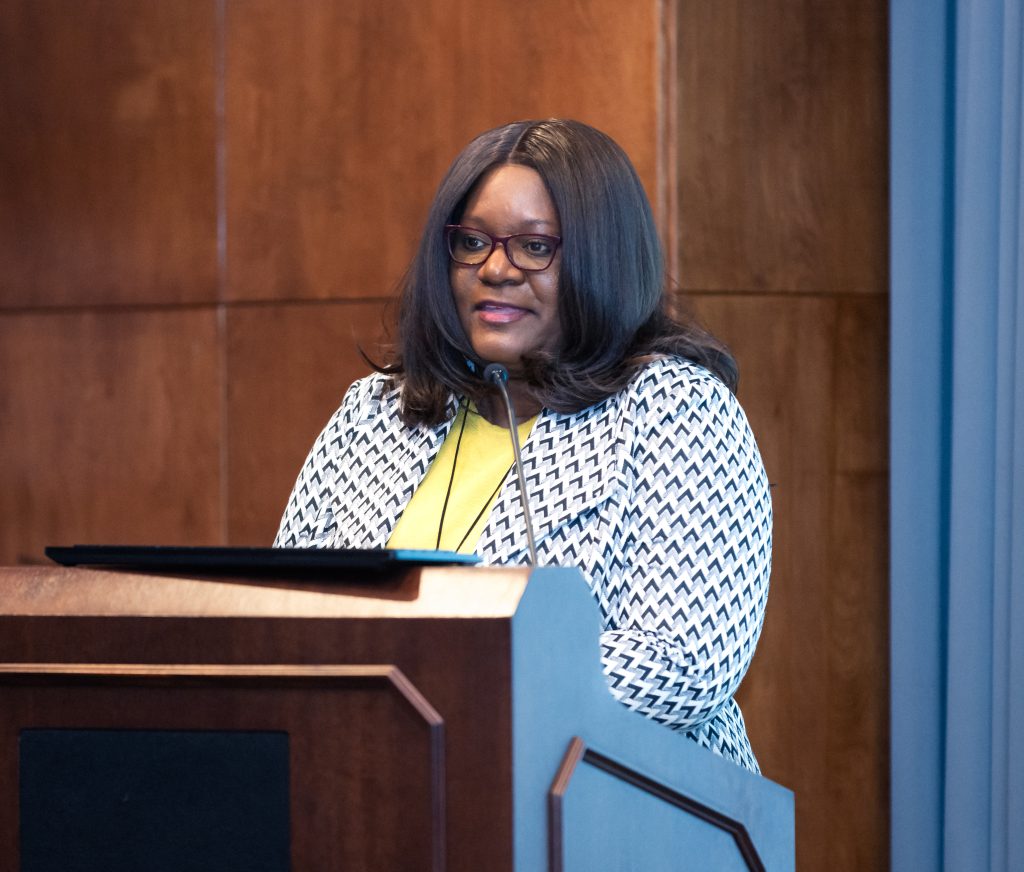
“I met Dr. West a couple of months ago over a Zoom call and was immediately impressed,” Dean Ramona Denby-Brinson said. “Not because of her academic accolades, of which she has quite a few, but within minutes of talking to her, she shared the passion that she has for the topics she’s going to talk about today [in ways that went] beyond academia. It’s real. She’s genuine. She has a heart for survivors, she has a heart for people. I felt so privileged that she said yes to this invitation.”
After spending the morning with School of Social Work students over breakfast, West presented her lecture “Becoming a Leader by Leaning Into Your Story,” to a packed house in the Tate-Turner-Kuralt Building Auditorium. The lecture marked a record-breaking attendance for the lecture series as more than 700 individuals tuned in virtually or in person to hear West expand on her strategies for social workers to become “survivor-centered, culturally-responsive, trauma-informed, strengths-based leaders by asking themselves, ‘What is my story?’”
“I wanted to come because it seems like she has a ton of experience,” said Emma Salyards ‘25 (MSW) after a community lunch that was served just before the lecture. “I’m really interested in someone who has interdisciplinary experience in a lot of areas. And I’m really interested in learning more about domestic violence and sexual assault in social work.”
West began by playing a video that shared her personal story. She’s the great-granddaughter of sharecroppers from Arkansas, and her grandmother was her protector. Her grandmother worked in a hospital helping the sick and their families, and West decided that she wanted to help people as well. One of the people she hoped to help was her grandfather, who later in her speech she identified as culturally traumatized. By the time the video ended, the audience had descended into a hushed silence, listening with rapt attention.
Speaking in a comfortable and conversational tone to the students, West told them that despite making strides in her career, from working in a postdoctoral position at the University of New Hampshire to writing her first book, “Violence in the Lives of Black Women: Battered, Black, and Blue,” she felt there was something missing. She realized she couldn’t become the best leader she could be until she leaned into her own story and told it fully.
West formulated a vision statement, “To educate, to empower and inspire a multicultural alliance of survivors to prevent all forms of violence and to help survivors to heal themselves,” and a personal philosophy to help guide her. Every morning, she sees them next to her computer and uses them as a guide to help her make decisions.
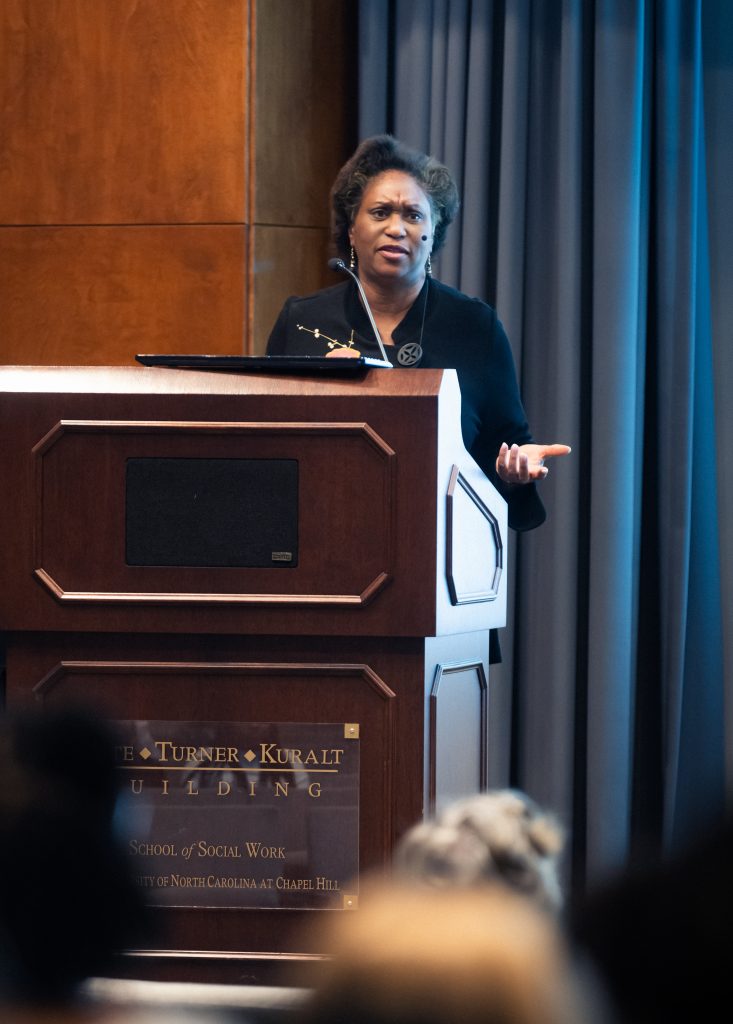
With her vision statement and personal philosophy in mind, West began working on technical guidance reports through the lens of the coronavirus pandemic and racial justice. She shared with the audience the need for survivor-centered advocacy and survivor-informed care to ensure that survivors are recognized as individuals, with responses crafted specifically for each person. Not only would social workers need to recognize and challenge biases, she said, but they needed to have open and honest conversations about race, racism and all forms of oppression.
They also needed to employ a strength-based approach, encouraging storytelling, writing a journal or listening to music. As West was describing the strength-based approach, she took off her jacket to reveal a Superman emblem on her shirt. She stated it was important to remember that people needed to be the hero in their own story. Social workers might want to be superheroes, but after taking on more and more responsibilities, their capes would start to drag from the weight. When she explained that part of being strength-based was working to “escape the cape,” the audience broke out in appreciative snaps.
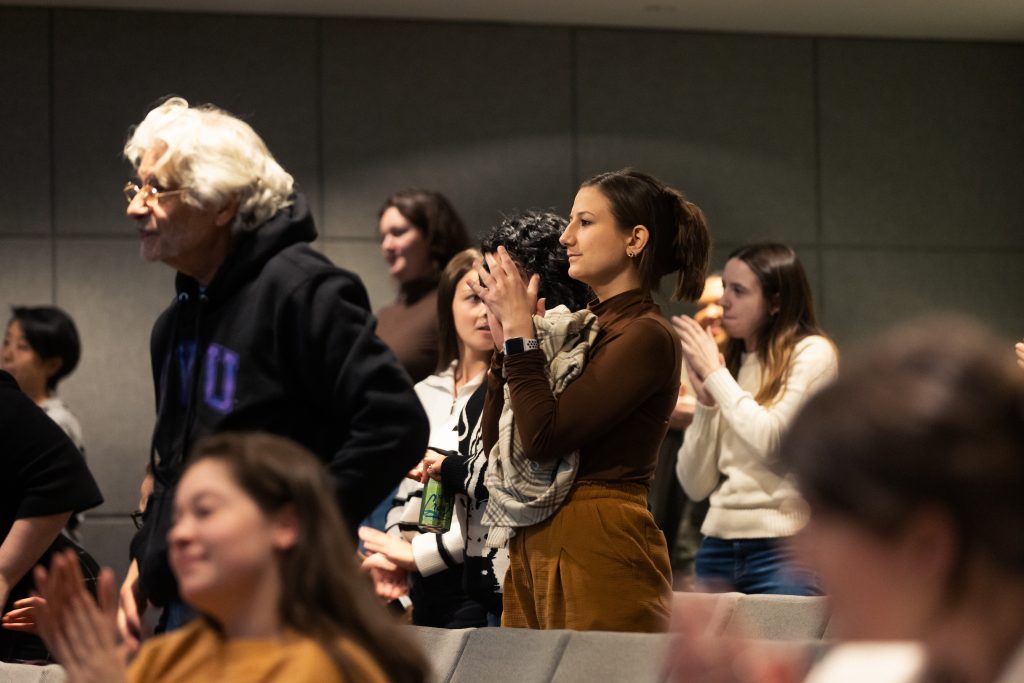
Finally, before ending the lecture and answering questions from members of the audience, West shared the importance of practicing extreme self-care. Such things as meditating or finding a happy place were imperative for social workers to help others. At the end of the day, social workers must be able to arrive home, put down their keys and leave their work behind.
“I think about what James Baldwin said. ‘He who finds no way to rest, cannot long survive the battle.’ Then, I go rest,” West said in closing.
Documentary Screening and Q&A
Later in the day, West returned to the Tate-Turner-Kuralt Building Auditorium to host a screening for students and faculty of the documentary, “Let Me Tell Y’all ’Bout Black Chicks: Images of Black Women in Pornography,” for which she is a writer and producer.
“I was talking with a colleague of mine, she did research on pornography, and I asked, ‘Is anyone looking at race and racism in porn?’ And she was like, ‘No, nobody’s going to touch that,’” West said. “So, I started to look around and looking at what I was seeing I just kept thinking, ‘Why is nobody talking about this?’ And I realized that either I was going to have to stop doing the work or else I was going to have to put it together in a way that made sense and share what I was learning. This is my attempt to do that.”
The documentary was divided into four sections, with West using the first section to trace her journey in studying Black women in media for two decades and the negative psychological toll these media images have on Black women. She examined more than 4,000 pornography film packaging and covers as part of her research.
The second and third sections examined the ways the content of pornography is different for Black women than for women of other ethnic backgrounds, and looked at the historical overview of these images and how these racial stereotypes directly correlate to violence against Black women, respectively.
The final section captured the consequences of sexualized media and contemporary pornography, such as normalizing sexual exploitation of Black women and increasing the likelihood of sexual assaults and sexual violence.
If we are to properly deal with these images, we need to become more educated in the history of these images, West stated. She hopes to see more research examining sexualized media and contemporary pornography, and noted the importance of educating adults who interact with Black girls and challenging hypersexualized media to help Black women and girls.
As the credits rolled, the auditorium was filled with a haunted silence, which lasted close to a minute as attendees processed what they had seen over the hour-long screening.
“That was a lot,” West said.
After allowing attendees some time to collect themselves, a spirited question and answer session began. It quickly evolved into an open-forum discussion for individuals to express their gratitude for West in making the film, the self-care process needed while doing this research and ask what was next for West.
“My goal is not to shame people … so that’s really important to me,” West said. “It’s going to be an ongoing project, but I appreciate you being willing to sit with this as I struggle to unpack this [issue] and all the wisdom you’ve shared with me during this day as well. Thank you.”
Assistant Dean for Strategic Communications and Marketing Barbara Wiedemann contributed to the reporting.
Related Stories
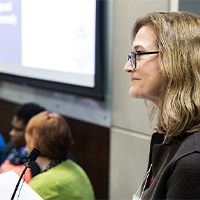
More than 500 licensed social workers, parents, advocates and community leaders joined virtually and in person at the Friday Conference Center on March 8, with the shared goal of finding ways to empower individuals with intellectual or developmental disabilities as part of the Legacy Speakers Series.
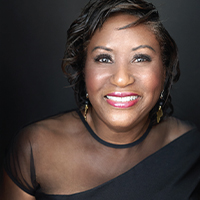
Renowned speaker to present annual Bobby Boyd Leadership Lecture
The School of Social Work welcomes Carolyn West as the guest speaker for the 2024 annual Bobby Boyd Leadership Lecture Series.

